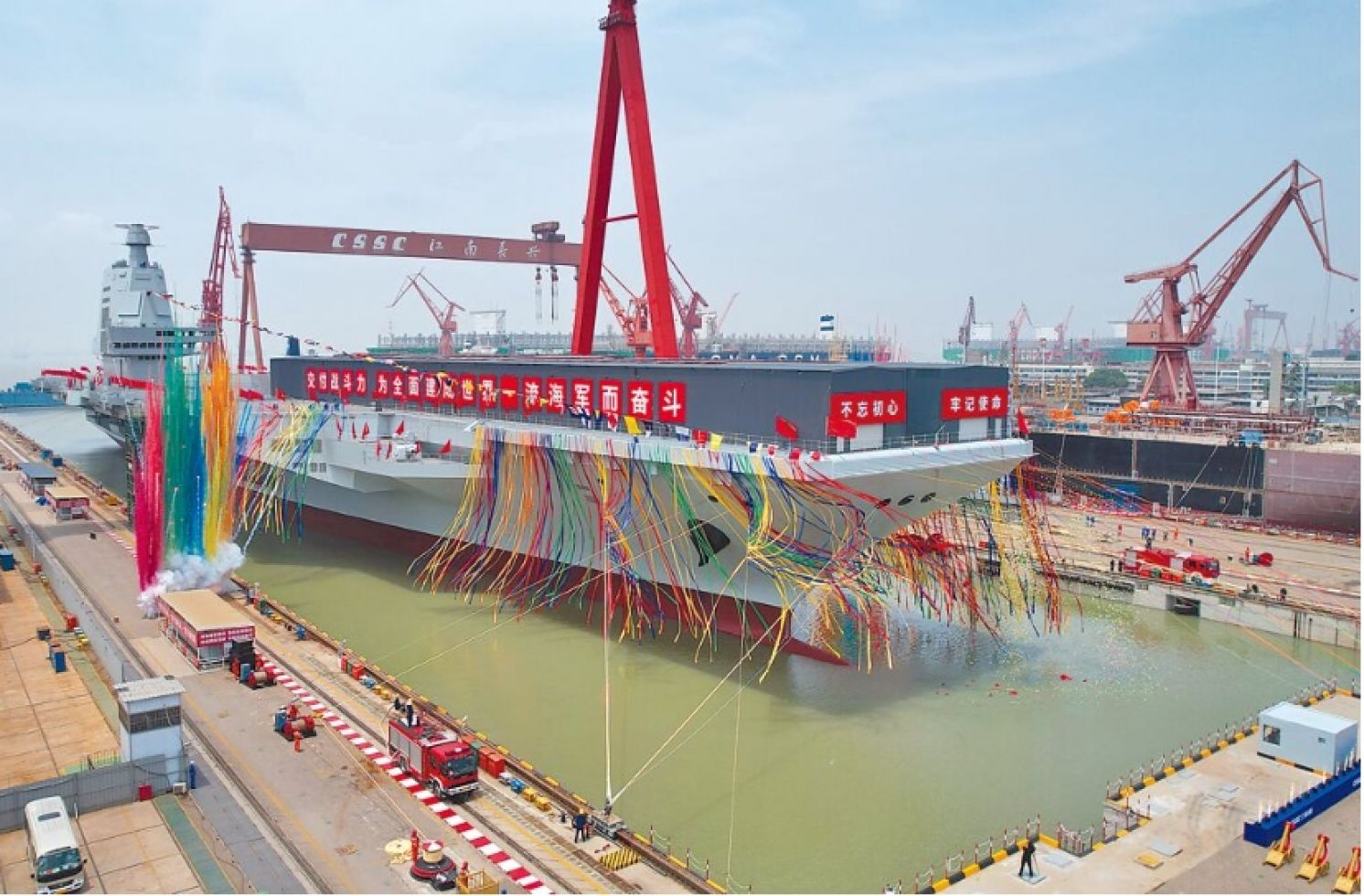
Is the Verbal Sparring between the United States, China and Taiwan No More Than Routine Rhetoric?
By Hu Yong
China Times, June 18, 2022
"This is an act of declaring war that totally flouts the principle of peace in international relations." “Communist China’s attempt to 'internalize Taiwan and the Taiwan Strait' is a provocative move that undermines the status quo across the Taiwan Strait and further escalates regional tensions." In response to the mainland’s Minister of National Defense Wei Fenghe's statement that China “cannot but fight at any cost" and Foreign Ministry spokesman Wang Wenbin's statement that "Taiwan Strait is not international waters," the Mainland Affairs Council (MAC) lost no time in responding strongly. If we listen only to the ruling Democratic Progressive Party, China is altogether a belligerent bully against the weak, but is this true? On the other hand, the mainland's recent stance does look tough, why is that?
First, mainland China’s target this time is actually the United States. Following President Tsai Ing-wen's showdown in her National Day address last year that “the two sides of the Taiwan Strait are not subordinate to each other," there is no room for improvement in cross-strait relations in the remaining term of her government. Although the administration of President Joe Biden in the United States often talks the talk and fails to walk the walk, after all, it has repeatedly declared that the United States does not seek a new Cold War with China, and it does not aim to change China's system. The revitalization of its alliances is not targeted at China, and the United States does not support “Taiwan independence.” And the United States does not intend to seek conflict with China, which has been put on the record by Beijing. Therefore, Mr. Biden openly blurting out that the United States is willing to use force to protect Taiwan caused an uproar and made the mainland furious.
Against this background, the People's Liberation Army (PLA) no longer covers up the military exercises in areas around Taiwan, instead it openly identifies U.S.-Taiwan collusion as the target. When Mr. Wei held talks with Secretary of Defense Lloyd Austin of the United States, he showed a "not hesitant to fight" attitude, which was followed by a highlighted pledge that China is "sure to fight to the end." These deafening words were obviously intended for the United States, as for the public denial of Taiwan Strait "International waters" is also directed at the "freedom of navigation operations" that the U.S. military has intensified in the Taiwan Strait.
Second, the mainland's successive shows of toughness are also to appease its internal nationalist sentiments and prevent the situation in the Taiwan Strait from getting out of hand completely. Although Beijing has repeatedly clarified that its major policy of "peaceful reunification" remains unchanged, because the DPP backed by the United States goes its way to the opposite direction, the reunification of the two sides of the strait seems to be ever more distant. Pessimistic radical rhetoric such as “peaceful unification is hopeless” and “unification by force is a must” began to spread. To this end, at the end of last year, the mainland Taiwan Affairs Office of the State Council carefully reminded netizens to follow the policy criteria and ensure that they are opposed to "Taiwan independence" instead of Taiwan itself. Zhang Nianchi, a well-known scholar on Taiwan, wrote an article earlier this year refuting "peaceful unification has to give way to unification by force," which was blisteringly criticized by a host of online opinion leaders and netizens.
Under huge internal and external pressure, the mainland has no choice but to show a tough stance. Whether it is “not hesitate to fight, or fight to the end," or "Taiwan Strait is not international waters," or the high-profile official announcement of the launch of the third aircraft carrier, they are all intended to be a shot in the arm to boost up confidence of the mainland people that everything is under control, "no matter what vicissitude in the situation of Taiwan Strait.” In fact, the mainland netizens have given rave reviews about the military’s touch stance up against the United States and cheered the launch of the third aircraft carrier "Fujian," and thereby relieved some of their anxiety and eased the mainland’s pressure of unification by military force.
Finally, although recent moves by the mainland have repeatedly become the spotlight, they have not deviated from the policy script in essence, and it is not worth making a fuss. Beijing has never renounced the option of "unification by military force," and the PLA’s air and naval exercises in areas around Taiwan has long since become regular actions. Mr. Wei simply spoke more stridently. Although the mainland clearly denies the "international waters" argument, it has never said that the Taiwan Strait is the mainland's inland waters. On the contrary, it lists the different concepts of internal waters, territorial seas, contiguous zones and exclusive economic zones. The so-called “internalizing the Taiwan Strait” is purely the DPP's persecutory delusion. Not to mention the "non-international waters" argument fails to control the United States at all. Before the end of this year, the priority agendas of Beijing, Taipei and Washington will be occupied by the 20th National Party Congress of the Communist Party, local elections in Taiwan, and the mid-term elections in America. No one wants to go overboard in the Taiwan Strait. The verbal sparring among three sides is no more than routine rhetoric.
He Yong is a mainland Chinese scholar and freelance writer.
From: https://www.chinatimes.com/opinion/20220618002587-262104?chdtv